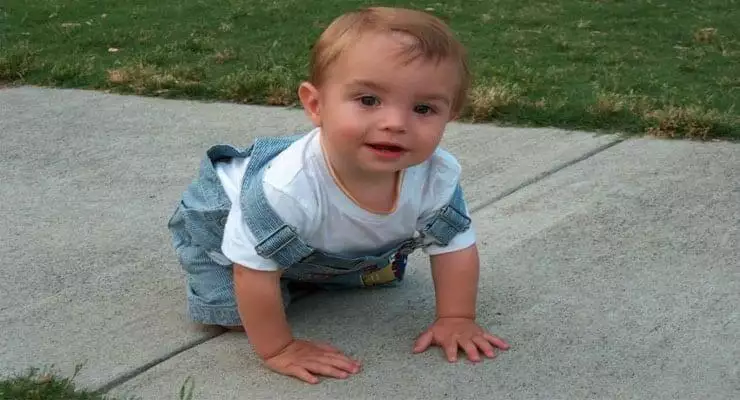Parents are often eager for their baby to begin talking and are excited to hear what his first word will be. Many parents are not aware that there are some important infant speech development milestones during their baby’s first year of life. By being aware of development milestones, parents can help encourage their infant’s speech development.
Infant Speech Development
Time Frame
While there is a wide variation of normal development in infants, there are several important infant speech development milestones that your baby should reach during their first year. Around 3 months of age, you baby will start to coo and and imitate sounds. Between 6 and 9 months, your infant will start to babble a sequences of consonant sounds, such as mamamam or gagagaga. Around your baby’s first birthday, he should start saying a few simple words such as “bye-bye,” “uh oh,” “Mama” or “Dada.” Although some infants are saying more words before 12 months of age, try not to compare your baby with other children.
Significance
The language milestones that your baby achieves in his first year are important building blocks for toddler language milestones, such as increasing vocabulary and putting words together. Babies who miss infant speech milestones often continue to have speech delays as a toddler and preschooler. It is also important for parents to know that babies and toddlers understand more language than they can communicate. In addition to increasing your child’s expressive language (what they say), it is important to help increase their receptive language (what they understand).
Considerations
If your child was born before 36 weeks gestation, he is considered premature and will typically achieve developmental milestones by his adjusted age instead of his real age. An adjusted age accounts for the number of weeks that a baby was premature. For example, a baby who was born 8 weeks early may not begin babbling until 8 to 11 months of age. Doctors use adjusted age when evaluating development milestones until a child reaches 2 years of age.
Prevention/Solution
One of the best ways you can encourage your infant’s speech development is to talk to your baby. Throughout the day, carry on conversations with your infant and look directly at your baby while talking. Use short sentences and emphasize high interest words, such as “milk,” “mama,” “dog,” “dada” and “ball.” Another way to enhance language development is to take your baby on a tour of your house and name the objects that you see. Be sure to read to your baby daily and point out objects in the books. Many parents find that teaching sign language to their infant increases language development because it encourages communication.
Warning
A baby who does not respond to sound and does not communicate verbally may have a hearing loss. If you are concerned about your baby’s hearing, have your child’s hearing tested by an audiologist. Infants who miss speech milestones during their first year of life, especially babbling, are at increased risk for speech delays. Speech delays can also be a sign of global development delays. If you are concerned about your baby’s language development, talk with your pediatrician or contact the Early Intervention agency in your area.





